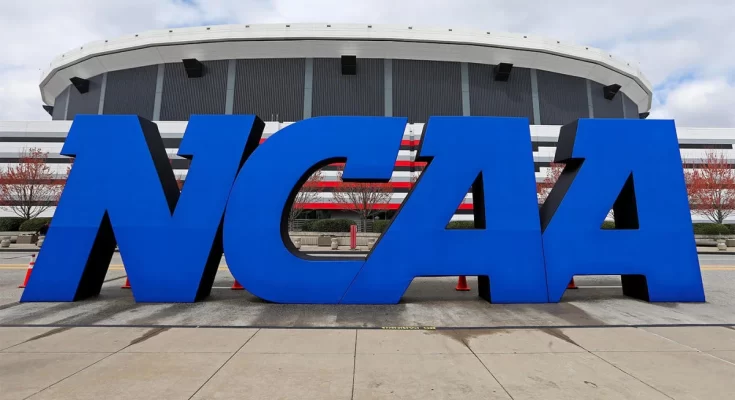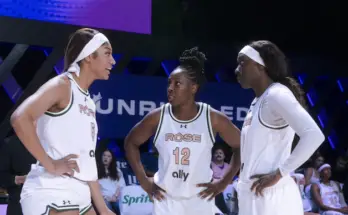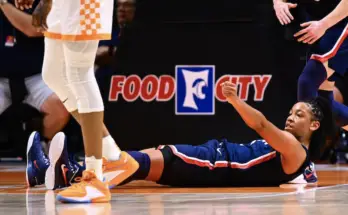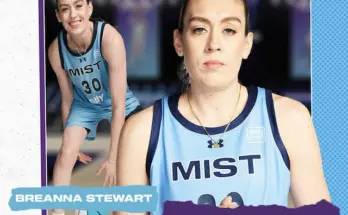The end of the NCAAW collegiate year is all too often the harbinger of that much anticipated. It is often maligned, and increasingly feared specter – the transfer portal. What once may have been a legitimate tool to seek educational and athletic possibilities elsewhere has transformed into something akin to a Hollywood cattle call on an enormous carousel, with all participants in desperate search of the elusive brass ring.
The Role of NIL and the NCAAW Student-Athlete
The debate on the good and the bad, the pros and cons of the portal goes on ad nauseam and is likely to do so for some time. With the introduction of NIL, which is another discussion entirely, the stakes have been perilously raised to the point where the term “student-athlete” has close to no emphasis or value on the “student” part. The “athlete” element has become less of a student and more of a marketable concern. This is both for the athlete and their respective institution.
Ultimately, the student-athlete goes to the highest bidder. Not that this is a new practice and has simply been legitimate by NIL. Is making money ethically wrong? Of course not, and if the athletic prowess of an individual translates into advertising revenue for a company, then the student-athlete is no different than any celebrity that appears in commercials or any form of advertising. But NIL is really only a part of the picture.
— RaeganBeers (@RaeganBeers) April 12, 2024
If one examines the ethical issues involved with the transfer portal, it becomes clearer what may be construed as a waning of any social contract and the continued rise of an egocentric approach to collegiate athletics.
Issues At Hand on the Matter of the Transfer Portal
If we look at the three main issues, utilitarian, deontological, and virtue, it becomes frighteningly easy to understand the significant drawbacks of the transfer portal. Utilitarian, or the consequential aspect of ethics, translates into the ability to break a contract. In this case, a scholarship is for purely selfish interests without regard for the consequences.
A coach builds a team and recruits a student on the basis of performance and potential. This is with the hope that that particular student will commit to four years.
The transfer portal creates the unfortunate opportunity (for the coach) to have that future altered and/or damaged. For the student, a chance to look for greener grass. As much as X never marks the spot, the grass is never greener, unless it is Astroturf, and then it is just fake. Deontological, or the act itself, becomes questionable when the choice is made to enter the portal based on nothing more than an absence of loyalty to the team and teammates and the institution itself.
Of course, any reason can be fabricated to mollify a situation. Yet, at the root of every excuse is selfish interest, which brings us to virtue, the character of the individual in question. An NCAAW student-athlete may feel as though they have been overlooked, not given a fair chance, or not been guided in the manner that they might have anticipated. Does this happen? Of course, it does. In these cases the transfer portal serves a useful purpose, allowing a student to seek out a more meaningful experience.
In defense of the Transfer Portal for NCAAW Athletes
However, there are those who feel as though they deserve or are entitled to something more. The reason is based on their own personal appraisal of themselves which may not coincide with that of their coaches. Conflicts do arise, but they are impossible to avoid. Perhaps there should be some kind of mediation available. Also, a cooling-off period whereby each party can more reasonably discuss whatever issue is precipitating the desire to transfer.
As with divorce, sometimes the best solution is to split up. It’s unfortunate, but often necessary. Additionally, what does the student-athlete who transfers to seek greener grass present to their potential new coach and teammates? We’ve seen more than one NCAAW student-athlete transfer multiple times. If that individual desires to work professionally as an athlete, what does that say to a head coach of a pro team? Is that the kind of person they want? To some, it may not matter, but to others, it might.
It isn’t just a question of skill, but also commitment to a coach, a philosophy, a team, and to teammates. Of the three, I think the character may be the most meaningful. This is because often character dictates actions and allows one to understand consequences.
Final Thoughts
I do not think that one can distill the idea of the transfer portal down to right and wrong, good or bad. The world does not turn on absolutes. It is a complex and complicated entity that deserves continued refining and clarification. Its imperfection may be the only constant. As much as it can serve a coach in need of replacing a player, it will wreak havoc on a coach who has organized a roster only to see it fractured due to nothing more than impetuosity.
Unfortunately, there is no cure for impetuosity. But it needs to be addressed in some way. Otherwise, collegiate athletes will cease to have a meaningful educational/athletic experience and become nothing more than an entry-level job. And the elusive brass ring? Yes, it is out there, but there is a huge crowd looking for it. While that should not necessarily deter those who seek it, it might give one pause to think, which is never a bad idea.
And that, my friends, as they say, is that.’ — Martin Ruben.
Follow Beyond Women’s Sports for more from the world of sports.




